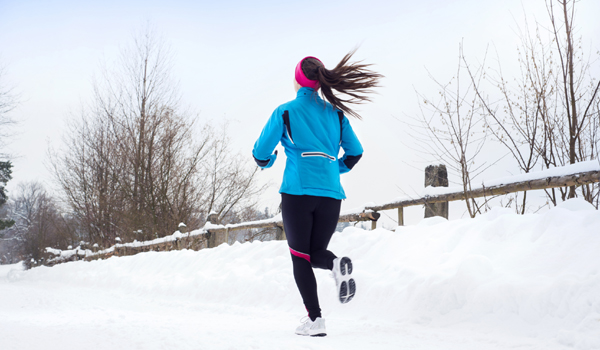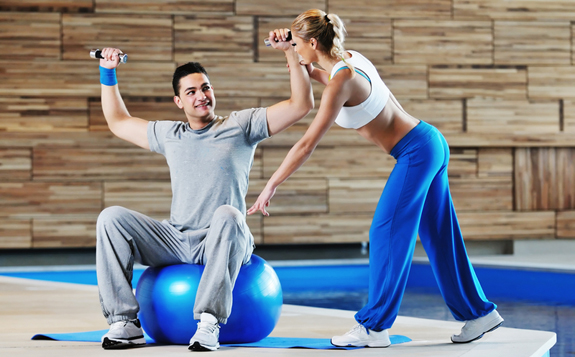Should You Consider a Personal Trainer for Your Ski Holiday?

Okay so once again you're off to the slopes and you're thinking back to last year and how you wished you'd worked out before you'd come. From your legs to your back and even your upper arms, you're sore! You get on that plane and feel like you need a week on the beach to really get some ooomph back!
Believe it or not that's how many families, couples and individuals feel after every ski holiday they go on. Apart from the après-ski, one day after another of skiing and people very quickly succumb to weariness if they are not fit and ready for about 3 or 4 workouts each day!
Step 1 - Do I Really Need to Bother?
Let's look at this practically and sensibly. There's absolutely no requirement for you to get a trainer or even embark on any fitness program for your ski holiday! If you are quite fit anyway and go to the gym regularly, then you should pretty much survive a week intact, although even you may have a few aching muscles as you walk around the ski resort and feel like you actually need another holiday to really relax!
However, if you don't do much fitness, walking or stretching throughout the year, then you may want to think more seriously about getting some fitness, especially for some key muscle groups - which is where the personal trainer can come in very handy.
Skiing or boarding means you are using a great number of your muscles in ways you don't normally. You may occasionally fall over or have to twist your stomach to hold a turn, bend your knees in order to soak up some bumps or hold an edge across the piste or ice.
All we're saying is a few exercises a week and you'll enjoy your ski holiday even more as you won't be exhausted come 2pm and want to go home to rest or dunk yourself in the hot tub!
Step 2 - What Are the Advantages?
There's a quite a few advantages to undertaking some specific ski or boarding exercises, namely you will have more stamina and strength in large muscle groups such as your thighs and back. This means your muscles will not fatigue as quickly, allowing you to stay on the slopes longer! So in a nutshell there's your answer.
But, as you've guessed there are some other advantages too.
The main one is the prevention of injuries. If your muscles are used to working out and have been strengthened by your use of weights, key exercises and repetition, then they are less likely to tear, stretch or fail altogether! This may well prevent you sliding headlong off the piste or down a particular steep and icy area of the slopes.
In addition, other advantages include a better ability to maintain your posture (your core stability helping here), the agility to correct an error before it becomes a full on crash and finally less tiredness come après-ski time!
Step 3 - When do I Need to Start?
So you already workout? Are you a complete couch potato? Those 2 extremes are actually both quite difficult to assess without knowing exactly what type of fitness you're into or how little exercise you actually do.
Therefore we advise that you should be thinking about doing some fitness and working out months, rather than weeks before your holiday!
Depending on your fitness start point, when you start getting fit for your ski holiday and, ultimately, the type and intensity of skiing you're looking to embark on when you're on holiday, there's no reason why you can't be on the first lift and back on some of the later lifts for the duration of your ski holiday. Obviously, neither us nor your trainer (if you're lucky enough to have one) can guarantee anything!
Step 4 - What Sort of Exercises Can I Do?
First off the exercise you start every day with is stretching. This applies when you're on your holiday too. First thing in the morning you should look to stretch your quads and hamstrings and do some light stretches. Too many people get dressed, have a large breakfast, walk to the lifts and once at the top, stick their skis on or strap into their boards and off they go. Wrong!
Getting ready for the slopes is all about ensuring you have flexibility, your core is up the task (mainly your tummy muscles) and your lower back strength is good. If you have specific injuries or weak areas (like knees and knee ligaments) then you also should be undertaking specialised exercises to strengthen these (with the advice of a Physic or personal trainer).
Making sure that all your primary muscle groups have been worked out and are strong and flexible will help you not only improve your technique, but give you more stamina and also help to prevent injuries. We have more details workouts elsewhere in the site which are broken down in to beginners, intermediates and advanced.
So what kind of things can you do in and out of the gym?
Cycling : Excellent for legs and lower back - especially if you're mountain biking. make sure you increase the length and intensity of the ride in the weeks before your holiday.
Weights : Perfect to isolate key muscles groups as well as do all over strength work with free weight exercises like "dead lifts". Always get expert help if you've never used free weights before.
Circuits : Great CV (Cardiovascular) workout to improve your stamina as well as tone and strengthen key muscles groups like the core and upper legs. Perfect for getting ready for your skiing and boarding.
Wall Exercises : Sitting with you back against a wall, with your thighs horizontal to the floor will help build that all important thigh muscles - the power house for skiing or boarding. Hard for beginners, but you'll soon surpass 3 minutes with some dedication and practise.
Running : Again great for your leg muscles and some core stability. It's also perfect for CV and therefore for building your stamina. It's also free and can be done anytime that suits you!
Step 5 - How Do I Go About Hiring a Trainer?
 If you really want to find the right personal trainer, the the NRPT (National Register of Personal Trainers) is the place to start your search. With over 800 qualified and insured personal trainers across the UK, you can search for a male or female trainer close to you to help you train for your forthcoming holiday. The NRPT has been promoting personal trainers since 1991, so you can rest assured the trainers adhere to a strict Code of Ethics as well as having the right qualifications.
If you really want to find the right personal trainer, the the NRPT (National Register of Personal Trainers) is the place to start your search. With over 800 qualified and insured personal trainers across the UK, you can search for a male or female trainer close to you to help you train for your forthcoming holiday. The NRPT has been promoting personal trainers since 1991, so you can rest assured the trainers adhere to a strict Code of Ethics as well as having the right qualifications.
The first step is for you to search your local area to find a PT. You can check their profile, look at their expertise and contact them directly via the NRPT website. You never need to meet them if you don't feel it's right and that's absolutely fine.
If you think you have found the right personal trainer (or two) then arrange to meet them in a public place or at a local gym so that you can find out more about them and how they would help you to train. Remember, you are paying them so if you don't feel they are suited to you, just walk away. If you do feel they are the right trainer, don't be afraid to ask to see their qualifications and insurance. Anyone worth their salt will have them on them.
Finally, the trainer should give you a consultation before they do any training. They will ask you medical questions as well as ask you directly what you want to focus on. Don't be embarrassed if it's losing a bit of fat as well as getting yourself ready for the slopes - most trainers have heard it al!
Finally, enjoy your sessions. If you feel uncomfortable doing an exercise, or want to try something different, don't be afraid to ask the trainer to change what they are doing. Enjoy and think of what you are aiming for.
Further Reading :
NRPT Trainer Search - www.nrpt.co.uk
Gym Equipment - www.trainingstation.co.uk





